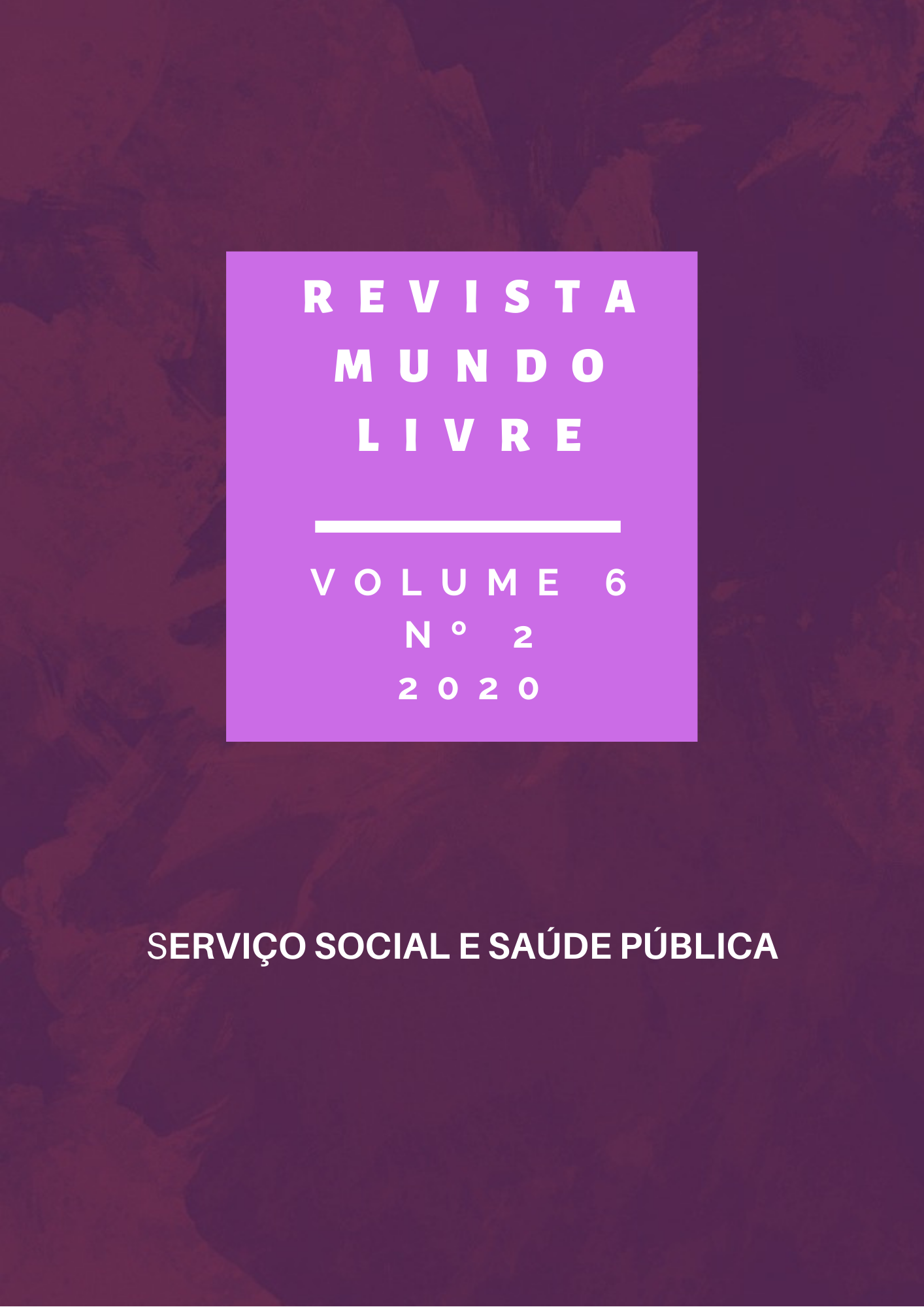A Grande Depressão Americana
Exposição dos discursos divergentes sobre a crise que abalou o século XX
Palavras-chave:
Grande Depressão, crise de 1929, história econômicaResumo
O presente artigo busca expor os principais argumentos utilizados por diversos autores, economistas e intelectuais acerca da crise americana de 1929, que abalou o país e o mundo, tanto de forma econômica quanto social, utilizando o recorte de 1929 à 1941. São realizados apontamentos e revisões pelo campo da história econômica, com seus métodos quantitativos dos dados e das teorias econômicas, sobre discursos de liberais clássicos, keynesianos, monetaristas e também da escola austríaca de economia, assumindo a ideia de rica sustentação das teorias econômicas divergentes entre si, na tentativa de compreensão do processo histórico-econômico que envolveu a época e que ecoa até os dias de hoje.
Downloads
Referências
BERNANKE, Ben S. Remarks. Conference to Honor Milton Friedman. 2002. Disponível em: https://www.federalreserve.gov/boarddocs/speeches/2002/20021108/default.htm. Acesso em: 5 ago. 2019a.
FRED, FEDERAL RESERVE BANK OF ST. LOUIS Board of Governors of the Federal Reserve System (US): Basic Discount Rate (discontinued).Disponível em: https://fred.stlouisfed.org/series/DISCNTD8. Acesso em: 5 Out. 2020.
CRAFTS, Nicholas.; FEARON, Peter. Lessons from the 1930s Great Depression, Oxford Review of Economic Policy. Oxford, v. 26, n. 3, 2010, p. 285-317. Disponível em: https://academic.oup.com/oxrep/article/26/3/285/374047. Acesso em: 4 ago. 2019.
CURVO, Raul. Comparação entre as Grandes Crises Sistêmicas do Sistema Capitalista (1873, 1929 e 2008). 2011. 222 f. Tese (Doutorado em Economia) ‒ Instituto de Economia, Universidade Federal do Rio de Janeiro, Rio de Janeiro, 2011.
EICHENGREEN, Barry. Hall of Mirrors: The Great Depression, The Great Recession. Oxford: Oxford University Press, 2014.
FRIEDMAN, Milton. SCHWARTZ, Anna. A monetary history of the United States, 1867-1960. Princeton University Press, 1963.
HOBSBAWM, E. Sobre história. São Paulo: Companhia das Letras, 2013.
HUWART, Jean-Yves. VERDIER, Loïc. Economic Globalisation: origins and consequences. OECD, 2013.
INTERNATIONAL MONETARY FUND. Research Dept. The world economy in the twentieth century: striking developments and policy lessons. 2000. Disponível em: https://www.imf.org/~/media/Websites/IMF/imported-flagship-issues/external/pubs/ft/weo/2000/01/pdf/_chapter5pdf.ashx . Acesso em: 4 Aug. 2019.
KENNEDY, David. The American People in the Great Depression: freedom from fear. Part One. Oxford, Reino Unido: Oxford University Press, 2003.
KNELL, Mark. Schumpeter, Minsky and the financial instability hypothesis. 2015.
LEWIS, Nathan. The Federal Reserve in the 1920s 2: interest rates. New World Economics, 25 nov. 2012. Disponível em: https://newworldeconomics.com/the-federal-reserve-in-the-1920s-2-interest-rates. Acesso em: 4 ago. 2019.
MAZZUCCHELLI, Frederico. A crise em perspectiva: 1929 e 2008. Novos estud. – CEBRAP, São Paulo, n. 82, p. 57-66, nov. 2008. Disponível em http://www.scielo.br/scielo.php?script=sci_arttext&pid=S0101-33002008000300003&lng=pt&nrm=iso . Acesso em 5 out. 2020.
MISES, Ludwig von. Liberalismo. LVM Editora, 2011.
MURPHY, Robert P. Praxeologia: a constatação nada trivial de Mises. 2010. Disponível em: https://www.mises.org.br/Article.aspx?id=230. Acesso em 5 ago. 2019.
OHANIAN, Lee. What - or Who - Started the Great Depression?, Journal of Economic Theory, v. 144, n. 6, 2009, p. 2310-2335. Disponível em: http://www.econ.ucla.edu/people/papers/Ohanian/Ohanian499.pdf. Acesso em: 6 ago. 2019.
POGGI, Tatiana. Faces do extremo: uma análise do neofascismo nos Estados Unidos da América 1970-2010. 2012. 437 p. Tese (Doutorado em História Social). Universidade Federal Fluminense, Instituto de Ciências Humanas e Filosofia, Departamento de História, 2012.
RITTENBERG, Libby. Principles of Macroeconomics. Boston, Massachusetts, EUA: Flat World Knowledge, 2009.
ROCKOFF, Hugh. A Monetary History of the United States, 1867-1960. Economic History Association. 1965. Disponível em: http://eh.net/book_reviews/a-monetary-history-of-the-united-states-1867-1960/. Acesso em: 6 ago. 2019.
ROMER, Christina. The Great Depression. Reino Unido, 2003. Disponível em: https://eml.berkeley.edu/~cromer/Reprints/great_depression.pdf . Acesso em: 5 out. 2020.
ROTHBARD, Murray N. Reliving the Crash of ’29. 2009. Disponível em: https://mises.org/library/reliving-crash-29 . Acesso em: 5 ago. 2019.
ROTHBARD, Murray N. A Grande Depressão Americana. São Paulo: LVM, 2012.
SICSU, João. Brasil: é uma depressão, não foi apenas uma recessão. Revista de Economia Contemporânea, v. 1, n. 23, p. 1-41, 2019.
SOULE, George H. Prosperity Decade: From War to Depression: 1917–1929. Abingdon: Routledge, 1977.
SOUZA, Luiz Eduardo Simões de. A História Econômica como Interdisciplina Interdependente. Revista Controversa, São Paulo, ago. 2003. Disponível em: https://www.academia.edu/1388998/A_Hist%C3%B3ria_Econ%C3%B4mica_como_Interdisciplina_Interdependente_S%C3%A3o_Paulo. Acesso em: 5 out. 2020.
STEINBECK, John. As vinhas da ira. Nova Iorque: The Viking Press, 1939.
WHAPLES, Robert. Where is there consensus among American economic historians? the results of a survey on forty propositions. Cambridge University Press, v. 55, n. 1, p. 139-154, Mar. 1995.
Publicado
Edição
Seção
Licença
Copyright (c) 2020 Mundo Livre: Revista Multidisciplinar Discente

Este trabalho está licenciado sob uma licença Creative Commons Attribution 4.0 International License.
Autores que publicam nesta revista concordam com os seguintes termos:
1.Autores mantém os direitos autorais e concedem à revista o direito de primeira publicação, com o trabalho simultaneamente licenciado sob a Licença Creative Commons Attribution que permite o compartilhamento do trabalho com reconhecimento da autoria e publicação inicial nesta revista.
2.Autores têm autorização para assumir contratos adicionais separadamente, para distribuição não-exclusiva da versão do trabalho publicada nesta revista (ex.: publicar em repositório institucional ou como capítulo de livro), com reconhecimento de autoria e publicação inicial nesta revista.
3.Autores têm permissão e são estimulados a publicar e distribuir seu trabalho online (ex.: em repositórios institucionais ou na sua página pessoal) a qualquer ponto antes ou durante o processo editorial, já que isso pode gerar alterações produtivas, bem como aumentar o impacto e a citação do trabalho publicado.


